ELPÍDA
Personnal Project - Role Play - Game 2019 → ?
Description: Elpída is a Role Playing Game project [greek-medieval fantasy / lovecraft] started and played since 2019 with more than twenty people having played on it including 2 people still present in the game campaign.
Currently with almost 300 pages of Lore, not counting scenario documents and documents/spreadsheets for the gameplay and practical aspects of role-playing.
The universe has continued to expand and become more complex since 2019, and with all the freedom given to my players, I'm even more determined to continue writing and enriching the universe down to the last nook and cranny.
I do writing regularly cause I want to transform this project in many ways like a "Webtoon" but hydrid (with sound and animation too), or to a physical Roleplay Set & Book, and to a video game.
For the moment there is no document in English, but I can share with you the google document that I make available to my campaign players (visible part of the universe).
My role in the project: Narrative design, Game master, Game design, Immersive gameplay design in & out the games, Illustrator, concept artist, chara design & environmental art.
balancing a role-playing game
The role-playing game is the boundary between a story and a game. How do you balance this while maintaining the player's immersion, freedom and character development?
I've selected a few of my problems that I've solved while respecting my constraints.
CONSTRAINCTS: Player's freedom in a highly structured narrative world / NPC & players are equals
PROBLEM 1: Limit randomness & overpower from players
Solution 1 :
• Limit randomness by defining 7 magic types with definite powers & limits. Everyone has 1 naturally.
Solution 2 :
• Every type of magic can be learned, but it's bound and given by a god, and they don't like people who worship anyone other than themselves.
Solution 3:
• The magic got a reserve, except that once at 0, we can exceed the limit but at the risk of serious injury. Regular emptying of reserves helps to increase them.
Solution 4:
• You can create your own spells using a spreadsheet. The die roll is based on several factors, such as the volume of magic, complexity and mastery of the spell.
• The addition of a factor to maintain the spell according to its nature, and another to give consciousness to a creation (to make a golem, for example).
Conclusion: Players have the freedom to use different types of magic and develop them, but risk facing the wrath of the gods if they try to have too much.
I've created lots of other tools like this to balance out many aspects of my world:
• The cost of a day in gold coin (to continue to make gold more useful)
• Remuneration of profession (to continue to make gold more useful)
• Quest rewards (adaptable to any scenario and (to continue to make gold more useful))
• Weapon/equipment/jewelry/accessory costs (to continue to make gold more useful)
• Weapon stats and rolls (any weapon added to the table will be balanced, and this allows players to be more creative with their weapon choices, as each weapon has its own personality).
• Manufacture of weapons / equipment / jewelry / accessories (with dice of 20)
• House construction costs (very complex spreadsheet, choice of materials, number of rooms, etc.)
PROBLEM 2: Maintain immersion even after the end of the game or for players who can't play (sense of a universe living independently of us)
Solution 1 :
• set up blurred summaries of every mission carried out by players (one-shot & campaign), available to everyone.
• Add to this information things that happen in the universe independently of the players, or consequences.
• Any information read in them will be considered as acquired by the character and not as meta information.
Solution 2:
• Provide a DiceParser discord channel to enable players who can't play to perform actions with their characters.
This system has worked so well that it's also used to write down the things they'd like to do, allowing me to create more personal scenarios for everyone.
Solution 3:
create consistency in the activities of player characters by giving them the mission they've accepted or been ordered to carry out (with a png letter).
This also provides an appetizer and helps players to prepare themselves.


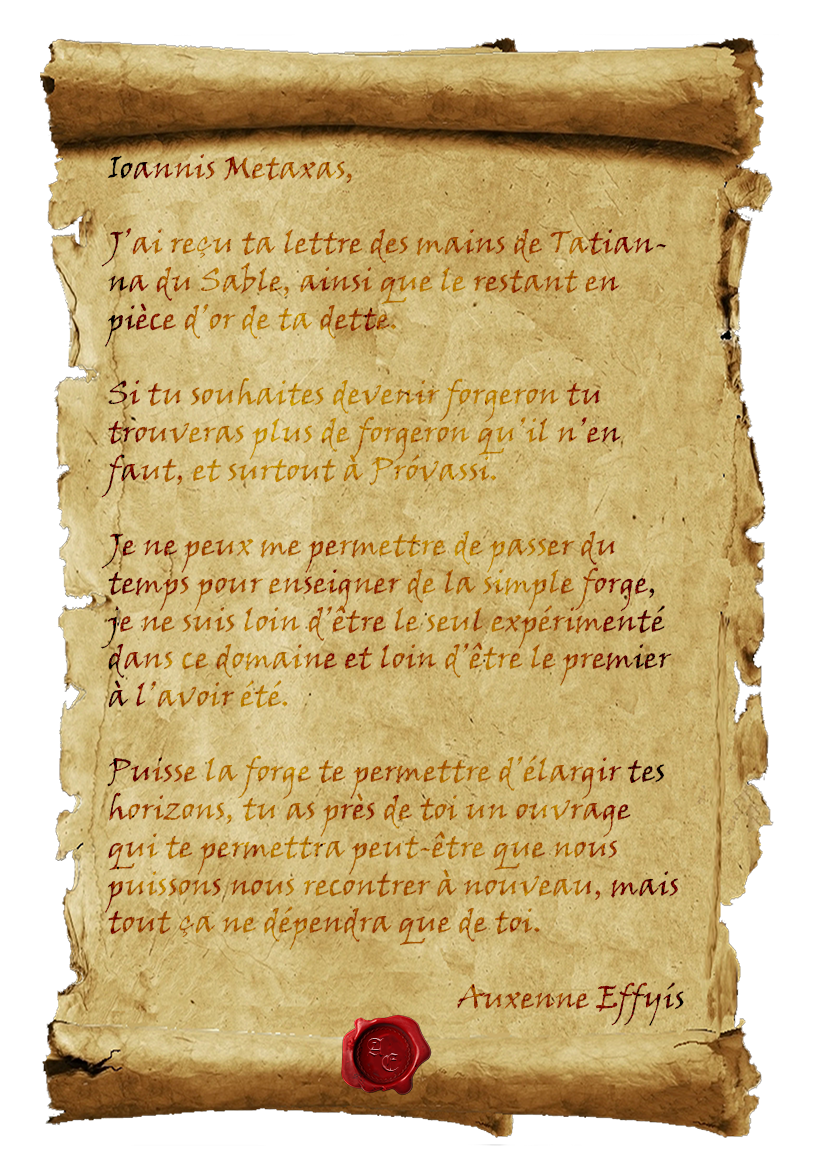
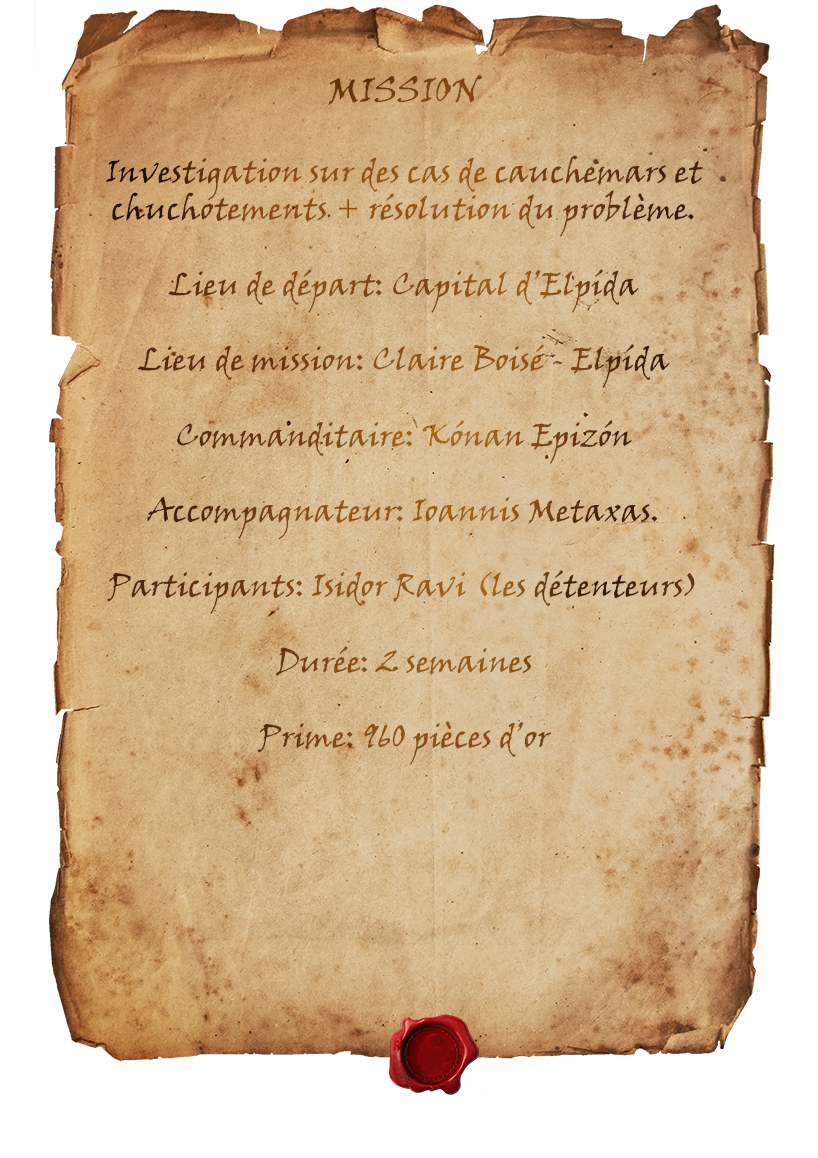
Conclusion: Players have the freedom to develop their characters in any direction they wish, while having an impact on the universe, even outside the game.
PROBLEM 3: Create "living" fictional characters, from the simple farmer to the hero.
Solution 1 :
• Creation of compact, complete "plug & play" mini-blocks. Allowing you to easily bring NPCs to life and develop them further.
• Over time, this creates a large list of data / NPCs, from which we can select those of interest to us for our next scenario, based on their professions, links, etc...



Conclusion: Players will meet multiple characters, all of whom are unique and will cross paths depending on their development choices and the NPC's "own reason".
SOME VISUAL WORK
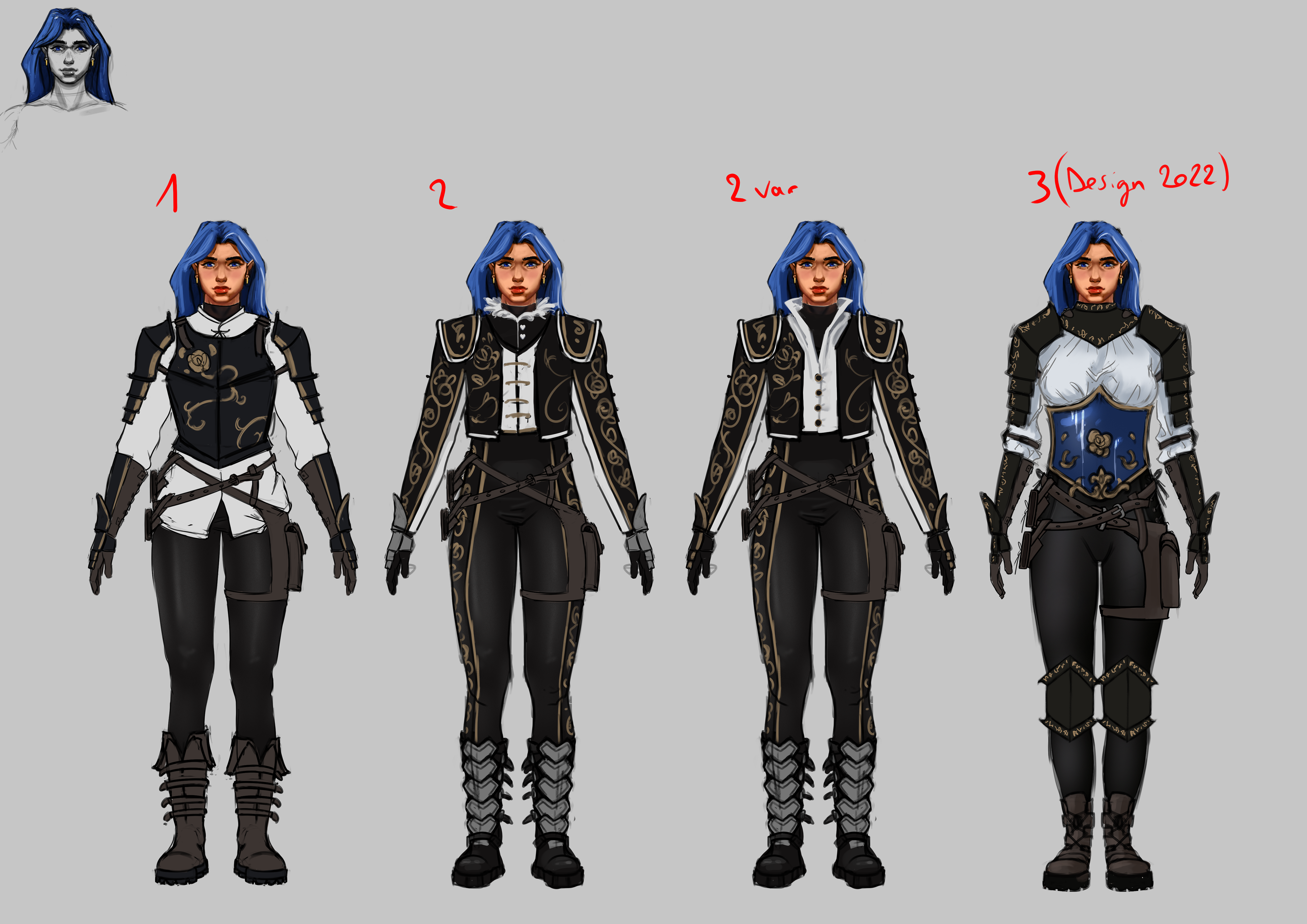
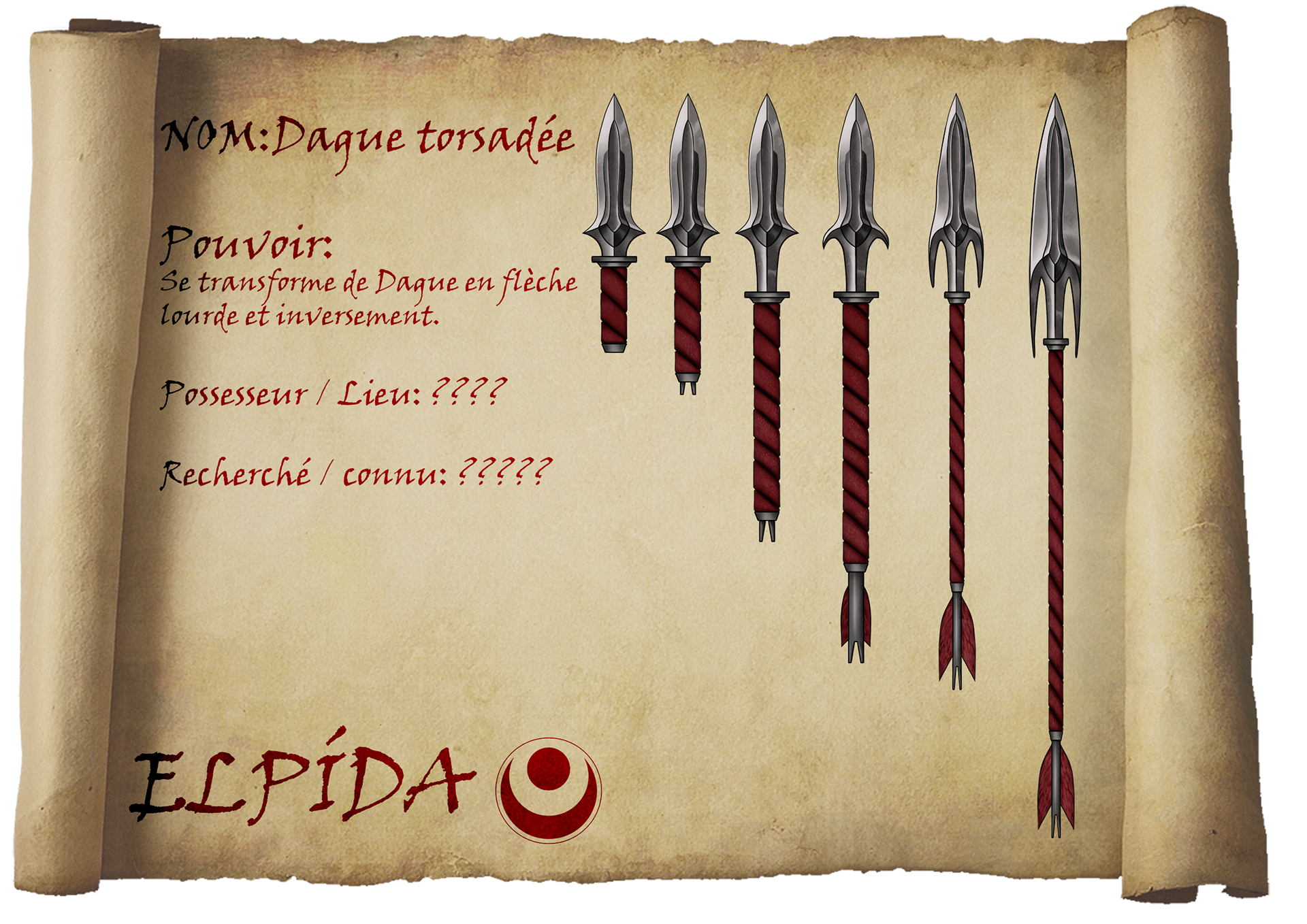
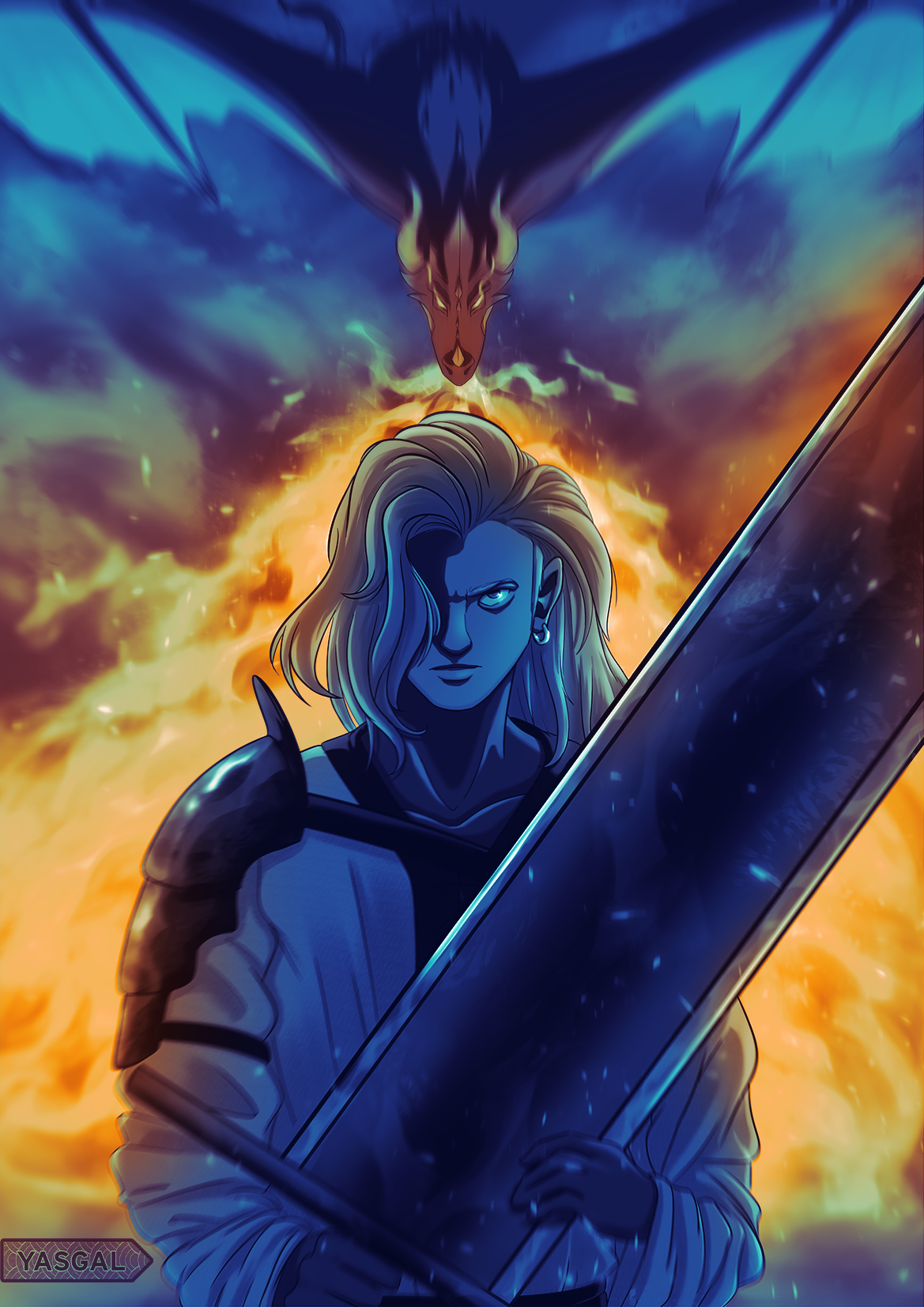
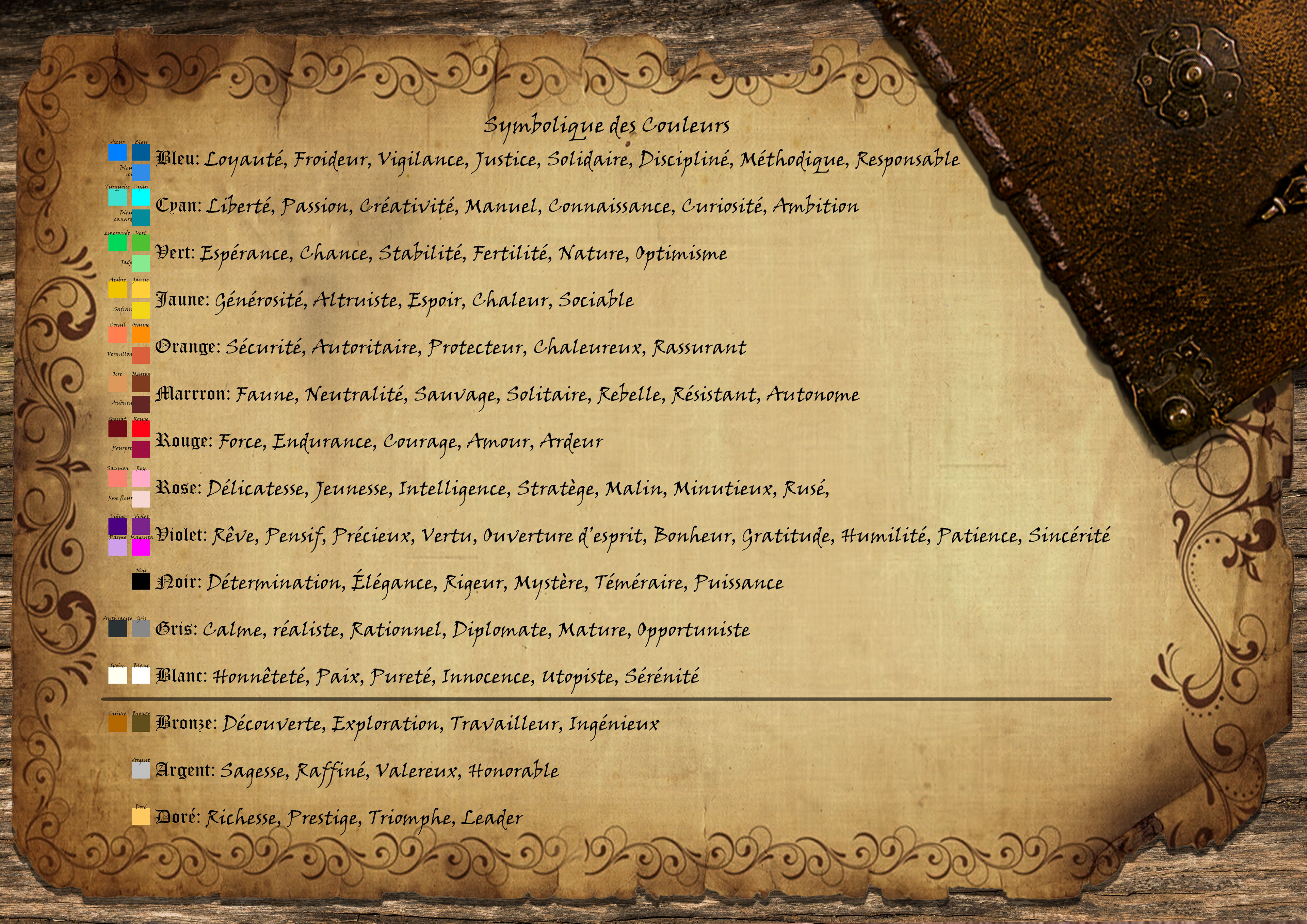
My own color symbolism


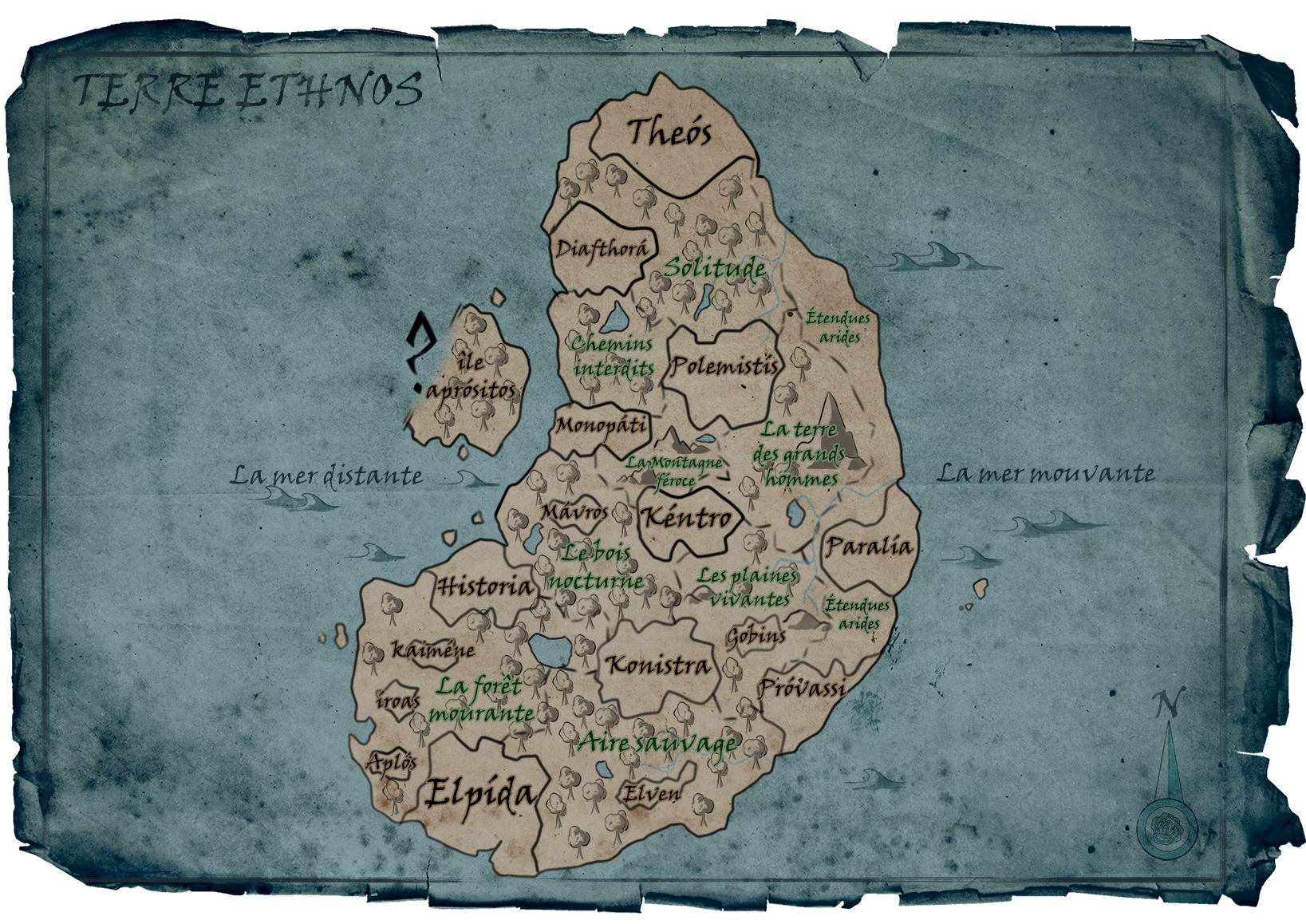
EXEMPLE OF NARRATIVE CREATION
The Witcher III - Tarnished Glory
Here's a project where I've started making DLC for The Witcher game, staying canon in the Lore and writing all the additional Lore as well as scenarios and graphic work (fakemap)
I've created a character for the Game PALADINS.
I've made that in 1 week, I read most of the game's lore and analyzed the creation of already existing characters, then created a character that could be canon to the story, with the creation of his skills, his deck, and a first test of damage / range / spell cooldown balancing.
This is not traduce in English
Memento - a disturbed calm
This is the narrative flow of a game that features a person who, because of his past, has moved from the big city to the countryside.
He's undergoing treatment for the paranoid attacks he's begun to suffer, but nothing's going to turn out well, at least depending on the choices he makes.
I did the narrative flow in 2 weeks (school deadline), again pushing the assignment too far, but I wanted to offer an interesting story with multiple choices, there are 35 different endings in all.
This is not translated into English (but take a look to the amount of work I've done)
There are also several game projects where I've written lore, even if it's not always obvious, as it initially helps to give coherence to the creation of the environment and characters. But here are the games I've written more or less about.


